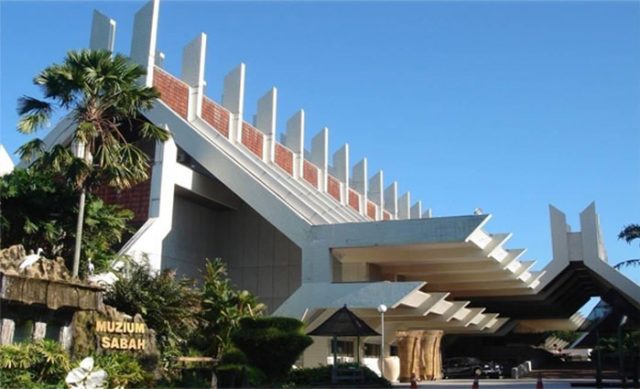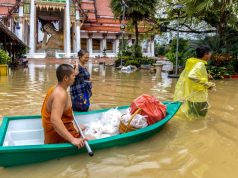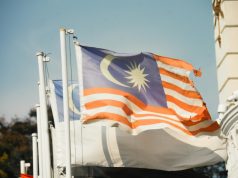KOTA KINABALU, Malaysia — Malaysian Prime Minister Najib Razak can no longer count on the state of Sabah on the island of Borneo as a “fixed deposit” for his ruling coalition, a senior defector said, just days before the country goes to the polls.
Najib has called Sabah, along with neighbouring Sarawak, fixed deposits for consistently voting for his Barisan Nasional (BN) coalition, thereby allowing the party to retain power for decades despite losing votes in peninsular Malaysia.
But an opposition groundswell in Sabah, famed for its rain forests, beaches, wildlife and mountains, including the country’s highest peak, Mount Kinabalu, threatens to upend expectations of a repeat performance.
Najib is still expected to win Wednesday’s election, aided by recently redrawn electoral boundaries that the opposition and critics say favour his ruling pact and squabbling between the Pakatan Harapan coalition, led by his former mentor, Mahathir Mohamad, and a national Islamist party.
The Election Commission and the government have both said the new boundaries are free from political interference.
Shafie Apdal, who leads the opposition push in Sabah, said anger is palpable among Sabah people, who he says have long suffered from poor public infrastructure, porous border security and the lack of job opportunities, despite supporting the ruling coalition for more than 50 years.
“It’s shameful for Sabahans to be considered a fixed deposit, when interest is not given (back),” Shafie told Reuters in an interview at his home in the state capital of Kota Kinabalu. “People are no longer stupid.”
There are few independent polls that measure voter sentiment in Malaysia, but analysts have mixed views on whether Shafie’s new Parti Warisan Sabah can dent BN’s hold on the state and shift the power balance in parliament.
BN has said it is confident of retaining power in Sabah. Najib says the state now has better infrastructure and that the government has tackled issues like illegal immigration from the neighbouring Philippines and Indonesia.
‘Old friend for 30 years’
Najib’s coalition faces arguably its toughest election since Malaysia gained independence from Britain in 1957, as former prime minister Mahathir, 92, mounts an unprecedented challenge at the helm of a resurgent federal opposition pact.
The prime minister is also grappling with popular anger over rising living costs and allegations of graft, as he seeks to better BN’s performance in the 2013 polls when it lost the popular vote.
Shafie, who quit Najib’s United Malay National Organisation (UMNO) party over the prime minister’s handling of the graft scandal at 1Malaysia Development Berhad (1MDB), said he had to speak out against his “old friend for 30 years” on a point of principle. Najib denies any wrongdoing.
“I’m not a political prostitute that you can dump money in my mouth, in my ears… I was his buddy, now I’m fighting against him,” Shafie said.
Since campaigning officially kicked off on April 28, Najib has faced growing criticism from former friends and UMNO veterans. On Saturday, his party sacked two senior leaders and suspended another, all long-time loyalists of Mahathir, for speaking against Najib and attending opposition events.
At a campaign stop in Kimanis, a largely agricultural district southwest of the state capital, Shafie told a crowd of about 1,000 supporters that change will only come if people roundly reject BN in both the general election and the state polls, run concurrently.
“The power is in your hands. This is not for Shafie Apdal… It is not for any other leaders. We do this for the people and future of Sabah,” he said, surrounded by dozens of white flags bearing the party logo of a ship encircled by two clasped hands.
BN currently holds 21 of the 25 parliamentary seats.
Shafie is promising higher petroleum royalties and greater state autonomy, which are long-standing demands of Sabah people. Sabah, separated from the peninsula by the South China Sea, accounts for nearly a quarter of the country’s vast oil resources. “The time has come to change Sabah,” Shafie said to cheers from the crowd. “Can we do that?” — Editing by Nick Macfie








